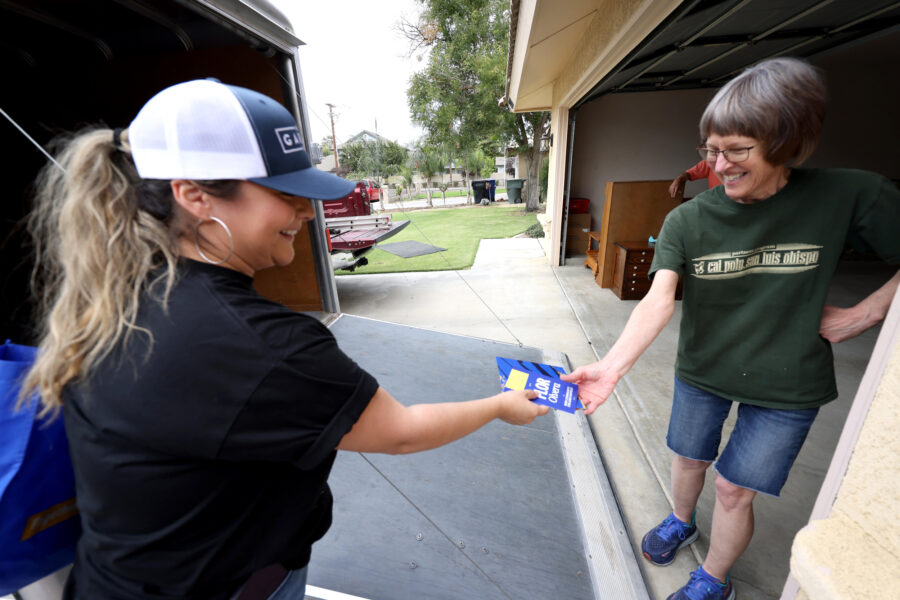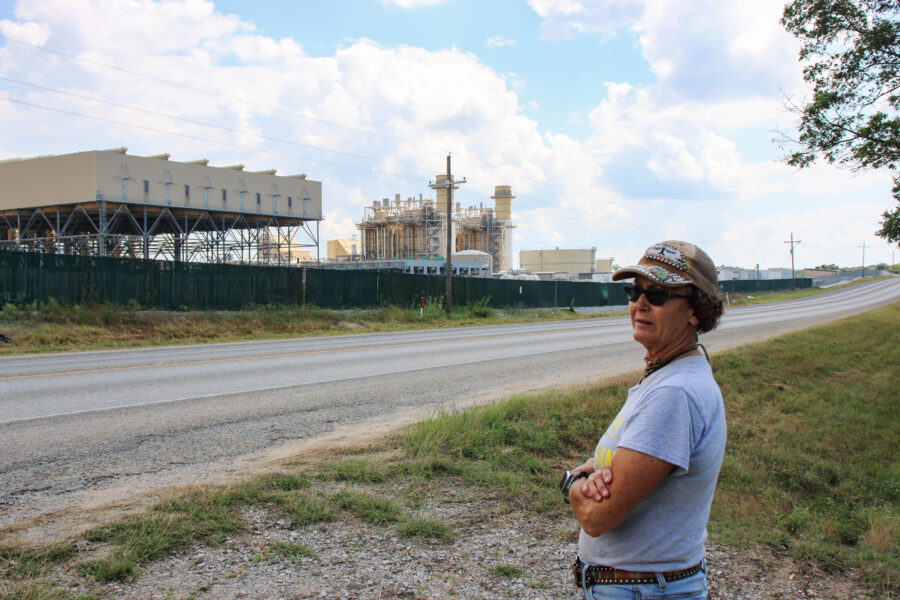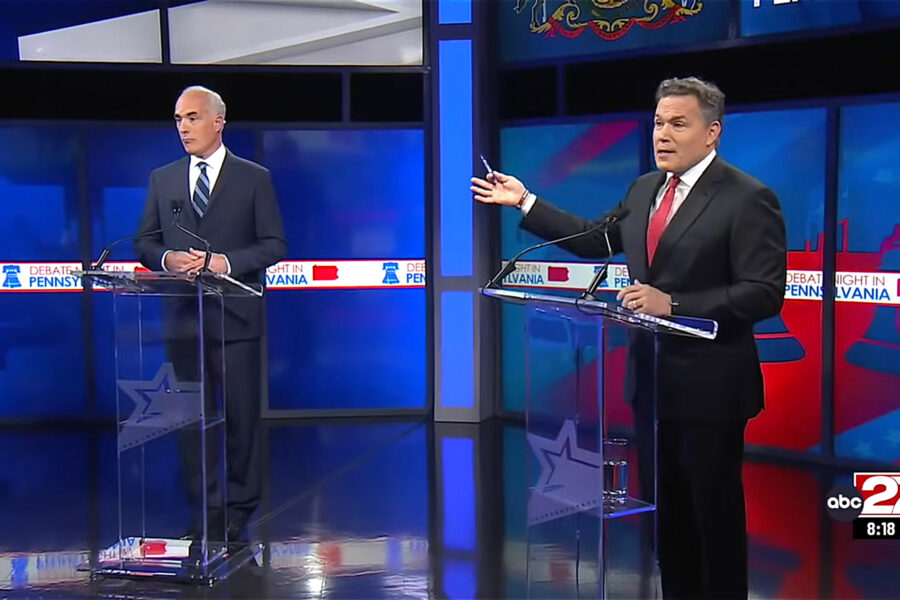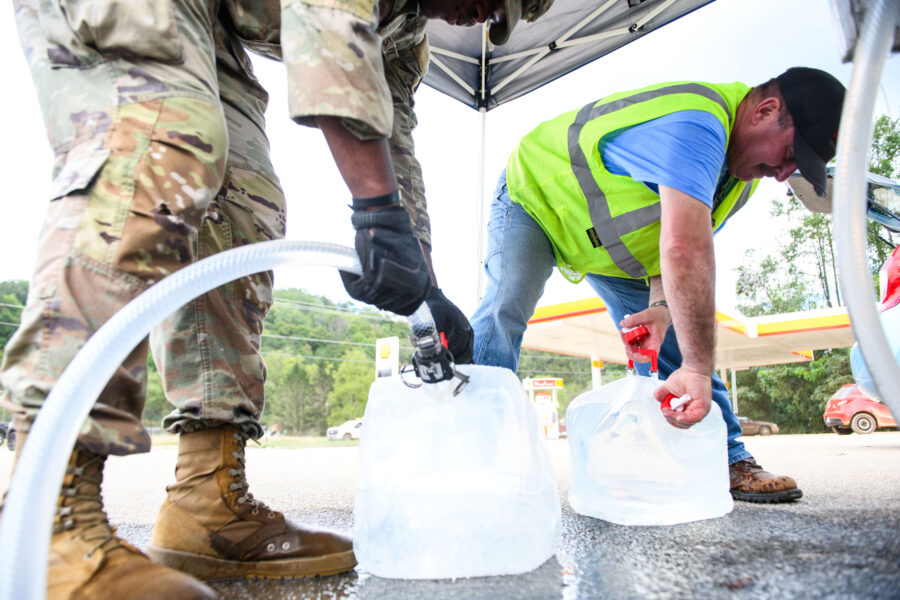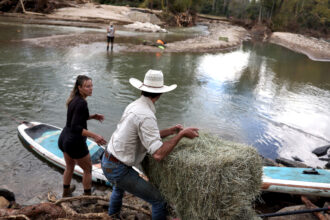A Carbon Capture Monitoring Well Leaked in Illinois. Most Residents Found Out When the World Did
On Sept. 13, Decatur, Illinois, city councilperson David Horn found out a monitoring well at a carbon capture and storage site in his community was leaking. He did not find out through an internal council meeting, nor an emergency phone call from the city manager or an alert from environmental regulators. He found out like most other people did, through an article in E&E News.
Carbon capture and storage (CCS) wells are a relatively new addition to the American carbon storage gamut. The well that leaked in Decatur was located at a plant owned by Archer-Daniels-Midland (ADM), a massive grain processing corporation, where wells store carbon dioxide emissions from the ADM ethanol plant deep underground. According to the U.S. Environmental Protection Agency, these projects, known as Class VI wells, involve companies injecting CO2, in the form of a supercritical fluid, into bedrock for “long-term storage.”
In August, the EPA issued ADM a notice of violation of the Safe Drinking Water Act. They noted that ADM “failed to meet the requirements of the Permit and the [Underground Injection Control] regulations” due to the movement of “formation fluids into unauthorized zones,” a failure to follow their emergency plan and a failure to monitor the well.
On Sept. 27, ADM notified EPA that they would be temporarily pausing CO2 injections after discovering a potential brine fluid leak in their second monitoring well.
Explore the latest news about what’s at stake for the climate during this election season.
The Decatur site hosts two of the four Class VI wells in the country to be fully permitted and operational. The other two are located in Indiana at Wabash Valley Resources, a fertilizer plant boasting a “zero-carbon” production process. But these wells are, in no small sense of the word, experiments, according to some advocates.
“One of the biggest problems with [CCS wells] is that they are very hard to pull back from if we’re wrong,” said Carolyn Raffensperger, executive director of the Science & Environmental Health Network, a nonprofit advocacy organization. “If a Class VI well cannot contain the CO2 indefinitely, these are experiments that are not safe to fail. If they fail, the risk to future generations is substantial.”
The risk of high-volume CO2 exposure—seen when a CCS pipeline ruptured in Satartia, Mississippi, in 2020—is CO2 poisoning, which can lead to everything from temporary unconsciousness to, in some cases, death. The Biden administration has doubled-down on funding for CCS projects through the Inflation Reduction Act to make inroads on his administration’s goal for a “net-zero emissions economy by 2050.”
In Decatur, Horn and other residents have questions about their right to know when things are going wrong.
“Between the CO2 leak that was detected by ADM in March and this fluid anomaly that has been detected in another monitoring well, combined with a lack of timely reporting, this raises questions about whether carbon sequestration is ready to be scaled up at a level that it is being proposed to be scaled up here in Central Illinois,” Horn said. “What is the mitigation strategy? We should probably have answers to that question before we embark on this scaling up of this relatively new technology and make sure that our critical assets are protected.”
Raffensperger said there is no legal precedent for informing residents of a leak. The EPA told Inside Climate News that “Class VI permits contain emergency and remedial response plans that include public notice provisions the permittee must meet. For example, a permit may require notice to local and state officials, in addition to the EPA.” ADM’s response plan for a “minor” well integrity emergency does not include informing local officials.

In a press release on Sept. 19, the EPA issued a proposed enforcement order, which would force ADM to “take compliance measures at its well, including implementing provisions of the permit’s emergency and remedial response plan.” The EPA maintains that there is no threat to drinking water. Horn is especially concerned that well leaks could threaten the integrity of the Mahomet Aquifer, which supplies water to around 850,000 people in Illinois. Comments on the proposed order will be accepted until Oct. 21.
For Horn, one of the most frustrating aspects is that ADM confirmed that they knew of corrosion in the well months ago. In a statement to E&E News, ADM spokesperson Jackie Anderson wrote that in March, the company “detected some corrosion in a section of one of two deep monitoring wells at approximately 5,000 feet and below.” The city of Decatur officially came to an agreement and signed an easement with ADM, allowing them to store CO2 on land owned by the city of Decatur, on May 3, 2024. The easement allowed ADM to expand their storage operations.
“To my knowledge, for at least two months, ADM was aware that CO2 was leaking. The easement agreement had not been signed, and ADM and the city were still negotiating the terms of the agreement,” Horn said. “But to my knowledge, the city did not know about the leak. And therefore, I can just speak for me, if I had known that a CO2 monitoring well was leaking CO2, I would have changed my vote on the easement, and I would have tried to convince my colleagues on the council not to do this.”
Representatives for ADM did not respond to Inside Climate News’ request for comment on the leak.
CCS projects, in general, have long been controversial for their high-risk status, especially given that the subjects of these projects are often “guinea pigs” in nearby communities, Raffensperger said.
“If a university was going to run an experiment on climate change, they would have to demonstrate a whole bunch of things, and it would have to go before an Institutional Review Board, which would protect human subjects from experimentation,” Raffensperger said. “We are running experiments on communities with none of the protocols that would be in place if a university did it, but we’re letting corporations do it, and there’s no free, prior and informed consent on the part of the communities.”
As an ADM official noted in a statement to E&E News, the issue with their monitoring well has to do with corrosion. Ted Schettler, SEHN’s science director, explained that corrosion is a significant concern with Class VI wells.
“Over time, a steel pipe is going to corrode from the carbon dioxide, and the concrete casing is going to corrode as well,” he said. “Now you have a situation where you’ve got a wellbore carrying the carbon dioxide down deeply, but over time, that wellbore could corrode and provide a direct path back toward the surface and back up into drinking water aquifers.”
In a statement to Reuters, ADM maintained that it plugged the leaking well and that there was no threat to public health. The ramifications of CO2 entering drinking water are immense.
“If CO2 gets into water, it forms carbonic acid, and that would tend to cause leaching of heavy metals and radioactive materials out of the surrounding rocks, which could then get into drinking water that’s being used by a community,” Schettler said.
According to Decatur communications director Ryan Huffer, the city is required to test their water for heavy metals annually. In a statement to Inside Climate News, he wrote that “heavy metals have not been an issue for the City of Decatur.” If the city does detect heavy metals in the water supply, they must notify residents within 30 days of learning of the violation in accordance with Illinois EPA guidelines.
Across the country, CCS projects are being proposed in primarily agricultural communities to capture CO2 emitted from agribusiness plants. Iowa officials recently approved a pipeline that operators dubbed the “world’s largest carbon capture and storage project.” In Indiana, BP has proposed its own CCS project.
Back in Decatur, Horn worries about a CCS-filled future.
“Keep in mind that the volume of CO2 that is being projected to be sequestered if pipelines are brought to Decatur is significantly more than what has been done in the past 10 years,” he said. “This calls into question the reliability and the predictability of carbon sequestration, and it calls into question whether it is appropriate to have these activities taking place in urban areas.”
About This Story
Perhaps you noticed: This story, like all the news we publish, is free to read. That’s because Inside Climate News is a 501c3 nonprofit organization. We do not charge a subscription fee, lock our news behind a paywall, or clutter our website with ads. We make our news on climate and the environment freely available to you and anyone who wants it.
That’s not all. We also share our news for free with scores of other media organizations around the country. Many of them can’t afford to do environmental journalism of their own. We’ve built bureaus from coast to coast to report local stories, collaborate with local newsrooms and co-publish articles so that this vital work is shared as widely as possible.
Two of us launched ICN in 2007. Six years later we earned a Pulitzer Prize for National Reporting, and now we run the oldest and largest dedicated climate newsroom in the nation. We tell the story in all its complexity. We hold polluters accountable. We expose environmental injustice. We debunk misinformation. We scrutinize solutions and inspire action.
Donations from readers like you fund every aspect of what we do. If you don’t already, will you support our ongoing work, our reporting on the biggest crisis facing our planet, and help us reach even more readers in more places?
Please take a moment to make a tax-deductible donation. Every one of them makes a difference.
Thank you,
David Sassoon
Founder and Publisher
Vernon Loeb
Executive Editor
Share this article
- Republish
Disclaimer: The copyright of this article belongs to the original author. Reposting this article is solely for the purpose of information dissemination and does not constitute any investment advice. If there is any infringement, please contact us immediately. We will make corrections or deletions as necessary. Thank you.

